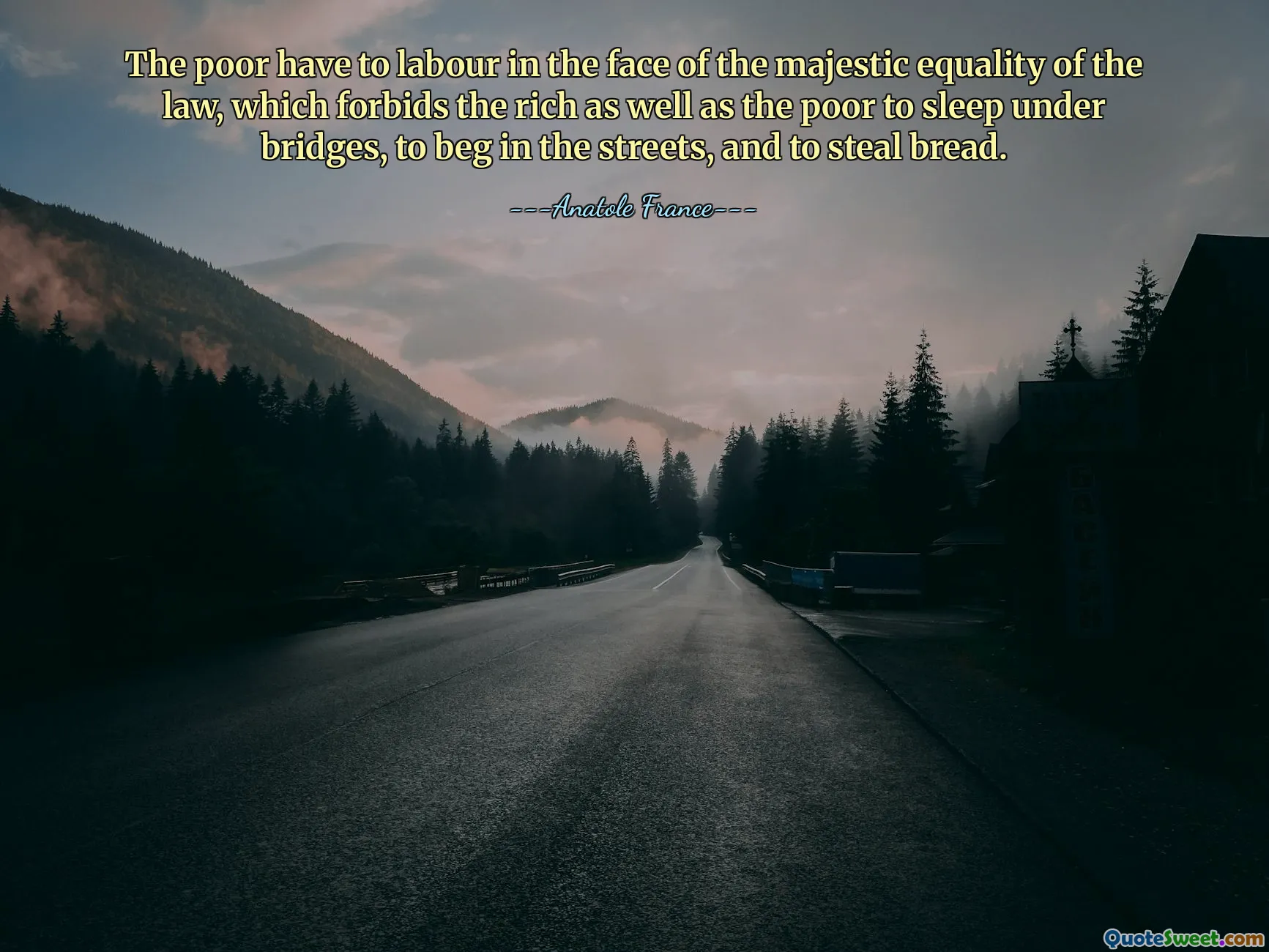
The poor have to labour in the face of the majestic equality of the law, which forbids the rich as well as the poor to sleep under bridges, to beg in the streets, and to steal bread.
This quote poignantly highlights the paradox of legal equality in society. It exposes a cynical irony: while the law enforces the same set of rules upon everyone, regardless of wealth, this so-called 'majestic equality' ultimately fails to consider the vastly different realities faced by the rich and the poor. The law prohibits behaviors such as sleeping under bridges, begging, and stealing bread equally, but the consequences of these prohibitions are far more severe for the disadvantaged.
The poor must abide by laws that criminalize poverty-driven acts simply because the economic conditions force them into desperate situations. They must labor and struggle just to survive, all within a legal framework that does not account for their fundamental needs. The rich, on the other hand, exist in circumstances where these same restrictions are seldom applicable or threatening, highlighting a legal equality that is superficial rather than substantive.
This statement serves as a caution against the simplistic notion that fairness is achieved merely by applying the same rules to everyone. True justice requires an understanding of context, social strata, and human dignity. It challenges us to consider how laws might be reformed or interpreted to achieve genuine equity rather than enforcing a blanket fairness that, in reality, perpetuates inequality. The quote thus invites reflection on social justice, the role of law in addressing poverty, and the ethical responsibilities societies hold toward their most vulnerable members.








